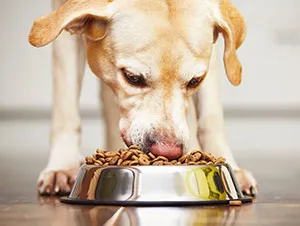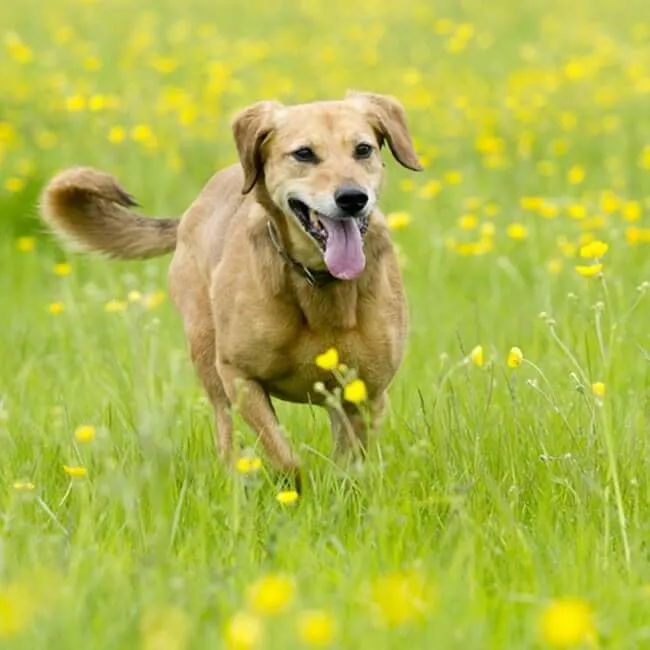Dog Constipation, What To Do?

The digestive symptom is arguably our most important sequence of organs, and the same can be said for in our dogs too and how they handle digestion and detoxification. For our dogs, it works 24/7 breaking down food to create energy, regulating the metabolism, and ridding your dog's body of toxicity. However, from time to time you might notice your dog not pooping. This could be a tell-tale sign of dog constipation, a common digestive problem that affects both dogs and humans. But how to help a constipated dog? We’ll discuss dog constipation symptoms, dog constipation relief, and even some natural remedies for dog constipation. But first, let’s understand what it is and how it comes about.
What Is Dog Constipation?
A very common problem for our four-legged friends, dog constipation occurs in the digestive system. It is actually one of the most common dog digestive issues, so it is important you understand what it is so that you can help. Just like in humans and other animals, dog constipation it is characterised by difficulty or even the inability to pass stool. But what causes it and how can you help?
What causes dog constipation?
If you are thinking ‘My dog is constipated and I don’t know why’, don’t worry because the answer isn’t too far away. Dog constipation, like many digestive issues, is largely brought on by diet and what your dog is or isn't eating. For example, fibre is a key macronutrient that your dog’s body needs to carry out an optimal quality of digestion, and failure to consume enough of it can result in dog constipation.
Equally, simply having a poor diet can be a common cause of dog constipation. The digestive system of your four-legged friends is a game of inputs and outputs, what you put in is what you get out, and if what you put in their mouth is of a questionable nature, you are likely to see a return on that nature when it comes out the other end! Problems such as obesity can also play a contributing role.
Not all dog constipation causes, however, are purely food related. It can also be a matter of grooming believe it or not. Dog constipation can, in fact, be the result of matted hair around, inside, or covering the anus, making it harder for your dog to pass stool. It could also be the result of swollen glands, a side effect of medication or lack of exercise. It is important to keep these causes in mind when you notice your dog not pooping before you make drastic dietary changes.
Dog Constipation Symptoms
Now that you have an idea what might cause dog constipation, the next logical step is to grasp what you will need to be on the lookout for if you want to make a clear diagnosis, so that you can then apply the necessary changes. Below is a list of ‘tell-tail’ dog constipation symptoms that can help you better understand whether your dog has an issue or not:

- Straining when passing stool
- Whimpering when passing stool
- Irregular bowel movements
- Lack of bowel movements
- Matted faeces
- Dry stool
Make sure that you look out for these signs when you are trying to formulate an understanding of your dog’s problem. If you notice your dog not pooping, or that when they do, they are straining uncomfortably or in pain, then your answer could very well be dog constipation.
Risks of Dog Constipation
Luckily, due to the fairly high commonality of constipation, you will be relieved to know that the risks of constipation are fairly low. However, you should still seek dog constipation relief as soon as the possibility arises because it can cause some complications. A build-up of faeces in your dog can lead to increasingly unpleasant straining when passing stool and even vomiting. However, the greatest concern is that it can cause your dog to have a reduction in appetite. As their body begins to associate eating with the process of straining when passing the waste of food, they will turn their nose up at their meals to avoid the discomfort. Arguably, this makes dog constipation treatment something that should be adopted for both your dog’s comfort and their health. So what to do when your dog is constipated?
Dog Constipation Treatment
You will be pleased to know that the tools to help bring about dog constipation relief are fairly easy to apply. This common problem comes with some common solutions that would constitute examples of home remedies for dog constipation. Taking these necessary steps, and making these necessary changes, can have a profound effect in delivering your dog constipation relief.
Dietary Change

One of the most common causes of dog constipation is a poor diet. Eating the wrong things can have some profound effects on how your dog’s digestion reacts, for example giving your pooch too much heavily processed foods can upset their digestion and lead to dog constipation. The same goes for giving them human food, which by nature, is not intended for the consumption of a dog. With that being said, you should also watch how much they are eating because obesity, as well as being linked to a host of other problems, is a primary cause. The best way to help is to make sure they are eating a balanced diet, with plenty of fibre and protein, and to make sure the quantity this diet comes in matches up with what they need.
Exercise for Dog Constipation

Diets’ partner in crime, exercise, is also an important thing to take on board when looking for home remedies for dog constipation. As mentioned before, obesity is a primary cause of dog constipation, and exercise can be a great way to help mediate weight. Furthermore, exercise is essentially the oil that greases the wheels of your dog’s natural metabolism. With your dog’s metabolism sped up, they are less likely to experience a back-up in the form of dog constipation.
Grooming

A more niche change to make, but perhaps your dog needed a trip to the groomers anyway! When brushing and cutting your dog’s hair, make sure that you don’t neglect the anus and the area around it. Pruning this area is a quick and easy way to stop the hair from matting, which could otherwise cause your dog’s anus to be blocked and help dog constipation rear its ugly head.
Dog Constipation Supplements

Last, and by no means least, in the series of avenues that you can go down when it comes to answering the question of what to do if your dog is constipated, is supplementation. Home remedies for dog constipation can come in the form of a wealth of dog-friendly supplements. Dog stool softeners are brilliant to take, as they work by changing the composition of your dog’s stool, making it easier to pass as a form of dog constipation relief. Dog digestive support supplements are the perfect way to complement a balanced diet and exercise as a way to both prevent and provide dog constipation treatment. It is also important when you supplement with your dog, to choose ones that are natural in their source. Natural remedies for dog constipation are not only more highly concentrated in the active agents that are necessary for targeting dog constipation, but they also lack the added chemicals and additives that could potentially cause greater complications.




















